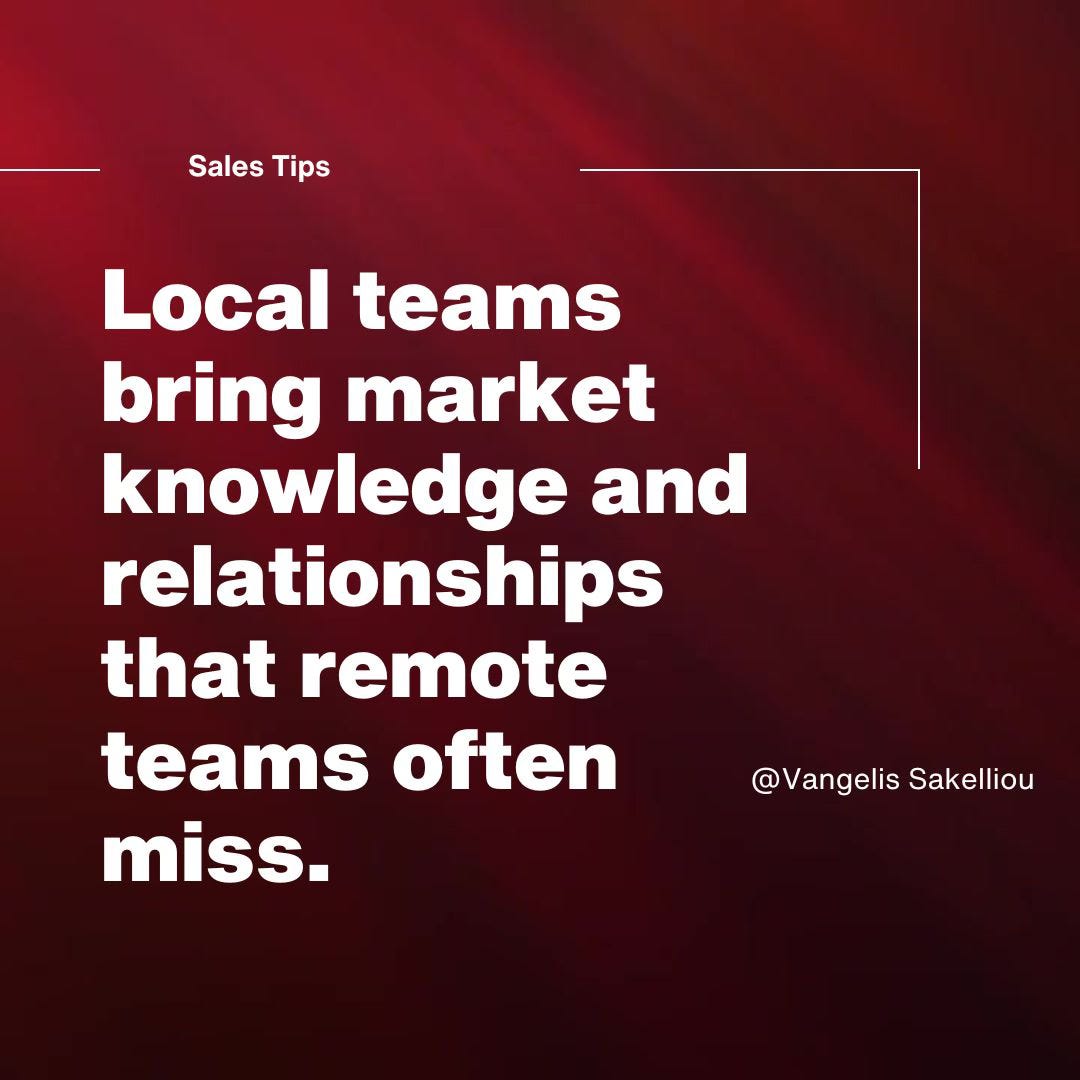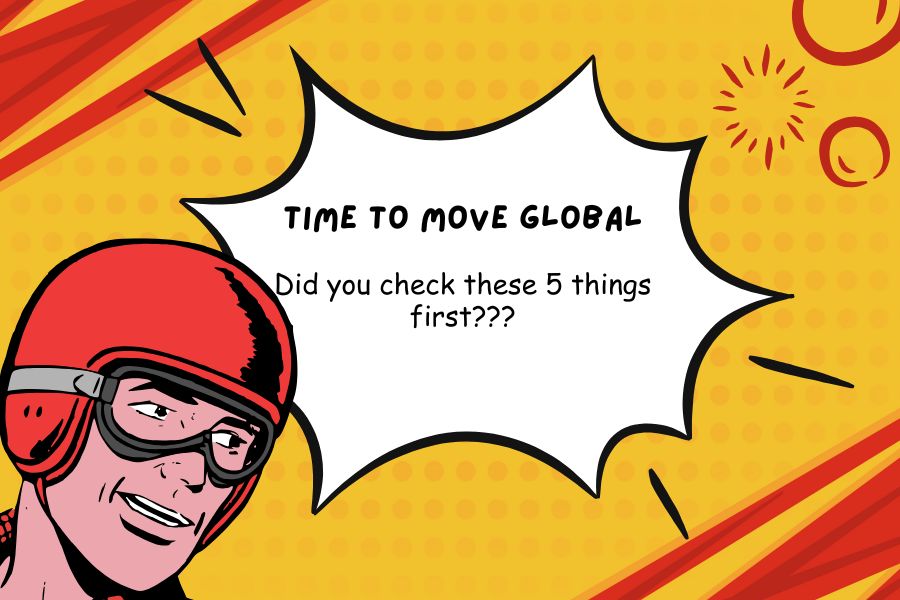When you’re looking to expand abroad and start selling internationally, one of the first things you need to consider is how you’ll be represented in another region or country. You have to decide whether your existing team can effectively cover the territory from afar or if it’s better to build a local team on the ground. This decision depends on various factors, and understanding these can help you make the best choice for your business.
What you will learn in this blog
Local knowledge matters – A local sales team can navigate cultural nuances, regulations, and client relationships more effectively than a remote team.
Costs vs. returns – Building a local team requires upfront investment, but it can pay off if the market potential is high and long-term growth is expected.
Time zones & responsiveness – Local teams eliminate communication delays and provide faster customer support, while central teams maintain consistency and oversight.
If you’re looking to grow your sales and build stronger client relationships, take a look at how I help teams like yours — and feel free to reach out for a chat.
1. First, consider the size and complexity of the market you’re entering.
If the market is large and diverse, having a local team can be beneficial because they will have a deeper understanding of the local nuances, consumer behaviour, and business practices. A local team can navigate the cultural and regulatory environment more effectively than a remote team. They can also build stronger relationships with clients and partners, which is crucial for long-term success.
2. Next, think about the nature of your product or service.
If your product requires a high level of customer support or customization, a local team can provide quicker and more personalized service. For instance, if you’re selling technology solutions that require regular maintenance or troubleshooting, having local technicians who can respond promptly is a significant advantage. On the other hand, if your product is relatively straightforward and doesn’t require extensive after-sales support, a central team might be sufficient.

I’ve just finished writing something new and insightful—and I think you’ll find it valuable. I wanted to offer it to you first.
FREE Starter Kit – Powering up your lead generation: Click HERE
3. Another factor to consider is the cost.
How will this affect any decision? Building and maintaining a local team involves significant investment in terms of salaries, office space, and administrative overhead. Do you think there is a positive aspect in building a local them? The return on this investment can be substantial if the local team drives substantial sales growth. If you’re entering a market with high sales potential, the upfront costs of a local team might be justified by the long-term gains. Conversely, if the market potential is uncertain or smaller, it might be more cost-effective to manage it with a central team initially.
4. The time zone difference is another important consideration.
If your central team is located in a vastly different time zone from your new market, this could lead to delays in communication and response times. A local team can offer real-time interaction, which can enhance customer satisfaction and improve business operations. For example, if your central team is based in New York and you’re expanding your sales to Australia, the time difference could hinder timely communication and support. Having a local team in Australia would mitigate this issue.
I’ve mapped out the ultimate tech stack for sales and marketing success—download the full guide and see what your company might be missing.
5. A central team has its advantages too.
It allows for consistent company culture and values to be maintained across all operations. It also simplifies management and oversight, as you don’t have to deal with the complexities of multiple regional offices. Additionally, a central team can quickly adapt and pivot strategies without the lag that can come from coordinating with distant teams. This streamlined approach can be effective for maintaining a unified brand image and strategic focus.
However, the challenge with a central team is that they may not fully understand or appreciate the local market dynamics.
They might miss out on subtle cultural cues or fail to build the same level of rapport with local clients that a native team could. This disconnect can sometimes lead to missed opportunities or missteps in market strategy.
Having a local team can greatly aid in scaling up your international sales, what is your opinion? Local teams for me bring in local knowledge and expertise, which can help in tailoring your products or services to better meet the needs of the market. They can also identify new opportunities for growth that a remote team might overlook. By being on the ground, they can respond quickly to changes in the market, competitor actions, and customer feedback.I’m always happy to share free, practical insights to help you grow your business development footprint. Don’t miss out; grab them from the links below.
FREE White Paper – Grow your sales internationally: Click HERE
FREE How To Guide – Navigating through sales opportunities: Click HERE
If you’d like to receive more insights like this and be part of a small group I email from time to time, just sign up using this link.

